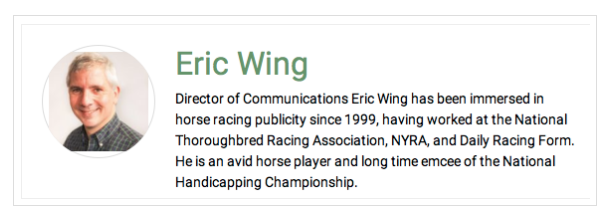
How great is Bob Baffert? Two of the most exciting things I’ve seen in racing over the past 30 years are American Pharoah’s 2015 Triple Crown after 37 years of waiting and Justify’s shattering of the Apollo Curse last Saturday. I don’t mean to equate the two achievements—American Pharoah’s is obviously far greater—but I’ve always felt extra excitement at events that end historic droughts…no matter what the sport.
I doubt many of my fellow New York Mets fans would agree, but one of my five or six favorite moments in team history was Johan Santana’s 2012 no-hitter vs. St. Louis. The feat certainly included a couple of tainted aspects. Carlos Beltran hit what was pretty clearly a fair ball down the left field line that the third-base umpire called foul. And Santana was allowed to throw 134 pitches in the game. His career was never the same afterward. Still, it all seemed worth it, at least to me. I had witnessed history. A long-standing dry spell had been ended.
Dry spells can be a lot of fun—when they belong to someone else. When they belong to you, it’s another matter entirely. And unfortunately, they can come quite readily to us horseplayers.

Whether you’re a hitter, a trainer or a horseplayer, cold streaks are agonizing, even if the math says that they’re pretty inevitable. When one’s odds of success are, in a vacuum, one in eight (based on the number of horses in a typical race), losing streaks can add up fast. For example, you often see a major league hitter go on an 0-for-20 schneid at some point during a season, and his theoretical chances of success are roughly twice as good as that of a trainer, jockey or bettor.
It can be even worse for tournament players, who regularly do battle against winning ratios of anywhere from 1 in 25 to as much as 1 in 65 (and that’s just online tourneys). Winning is hard!
Almost as bad as the losing itself is the self-doubt that cold streaks foster. Every photo suddenly seems to go against you. Even more frustrating, every time you have to make a hard choice between two horses you like, you go with the wrong one.
What to do?
This is hardly rocket science, but my first bit of advice is something that won’t sit well with the notoriously crabby HorseTourneys accountants: Take a break.
Horses sometimes need freshenings. So do horseplayers. Winning is fun. Losing is not. When you’re not winning, handicapping isn’t fun either. It becomes more of a chore than a pleasure and that’s not the way it’s supposed to be. Taking a week, or even a month, off without allowing yourself to look at PPs can have an enormously restorative effect on one’s enthusiasm for the game. My suggestion here is that, however long a break you think you need, take that plus a week extra. By the time you do jump back into the water, you will be dying to sink your teeth into the races—and that’s exactly the mindset you’re hoping to regain.
Another method some find effective—especially those who prefer not to choose abstinence—is to play a track you are unfamiliar with.
This may seem counterintuitive to those in the throes of a dry spell, but it forces you to get back to basics and focus on foundational concepts like speed, pace and class that you may have unknowingly gotten away from as a result of “knowing too much” about your local circuit.
Take New York, for example. Pretty much every day there are perfectly legitimate horses that win but that people decide not to bet on because Chad Brown…or Pletcher…or Rudy has one in the race. Or because they’re sprinters drawn inside. Or because the trainer stats are underwhelming. Or, or, or.
Not that trainer knowledge or post position data don’t have their places, but aren’t they sort of secondary factors rather than primary ones? Playing a single-track tournament on an unfamiliar circuit can have the oddly liberating effect of taking you back to the things you looked for when you first started playing (and winning). It allows you to tune out some of the noise that sometimes masquerades as the signal—and that can pay dividends when you do return to your more customary tracks and circuits.
Cold streaks stink, but one way to look at it is that they bring you that much closer to your next hot streak. And unlike Triple Crown droughts or Apollo curses, it doesn’t take a Hall of Fame trainer to bring them to an end. It just takes you.
